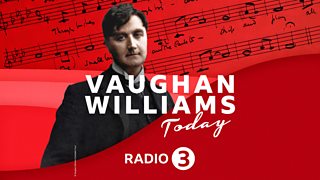
The Odd Couple
Donald Macleod explores key figures in Straussâs life, today, his librettist Hugo von Hofmannsthal. These two very different men enjoyed an extraordinarily productive partnership.
All this week, Donald Macleod explores key figures in the life of Richard Strauss. Today we meet his first and most distinguished librettist, Hugo von Hofmannsthal. These two very different men â practically chalk and cheese â enjoyed an extraordinarily productive creative partnership that lasted over two decades and was only terminated by Hofmannsthalâs untimely death in 1929.
Their paths had first crossed in 1900, but the idea of a collaboration didnât emerge till a few years later, when Strauss saw a production of Hofmannsthalâs German-language adaptation of Sophoclesâ bleak revenge-tragedy Elektra at Berlinâs Little Theatre. Strauss immediately saw that the play was crying out to be transformed into an opera; Hofmannsthal was happy to concur; and a masterpiece was born â one that consolidated Straussâs position â recently established by his succĂšs de scandale, Salome â as one of the leading lights of the musical avant-garde. Their next collaboration turned things topsy-turvy, as Strauss beat a nifty retreat from the brink of the stylistic precipice on which he had found himself teetering with Elektra, and plunged headlong into the warm bath of Der Rosenkavalier, a comedy of manners set in 18th-century Vienna during the reign of Maria Theresa. Four more operas followed, the last of which â a straightforward love-story, Arabella â was Hofmannsthalâs response to Straussâs request for âa second Rosenkavalier â if you canât think of anything betterâ. When the premiĂšre finally took place, in Dresden in July 1933, Hofmannsthal had been dead for four years. In a manner worthy of tragic opera, he had died of a stroke as he dressed for the funeral of his elder son Franz, who had killed himself two days earlier. Strauss was disconsolate, saying of his former partner, âNo one will ever replace him for me or for the world of music.â As for Arabella, the premiĂšre was only a moderate success, and when it was produced in Vienna, several wits dubbed it Sklerosenkavalier â Strauss being diagnosed as suffering from sclerosis of his musical arteries. Notwithstanding the sharp tongues of those catty Viennese critics, the opera has stayed in the repertoire internationally to this day.
Der Rosenkavalier, Op 59 (Act 1, Introduction)
Philharmonia Orchestra
Herbert von Karajan, conductor
Le bourgeois gentilhomme, suite for orchestra, Op 60 (1. Overture)
The Deutsche Kammerphilharmonie Bremen
Paavo JĂ€rvi, conductor
Elektra, Op 58 (Scene 6, âWas willst du, fremder Mensch?â)
Inge Borkh, soprano (Elektra)
Dietrich Fischer-Dieskau, baritone (Orestes)
Staatskapelle Dresden
Karl Böhm, conductor
Arabella, Op 79 (Act 2, love duet âSie sehn nicht aus wie jemand, den das alles da interessiert.â)
Lisa della Casa, soprano (Arabella)
George London, baritone (Mandryka)
Waldemar Kmentt, tenor (Elemer)
Harald Pröglhoff, bass (Lamoral)
Vienna Philharmonic
Georg Solti, conductor
Der Rosenkavalier, Op 59 (Act 3, Finale)
Philharmonia Orchestra
Herbert von Karajan, conductor
Produced by Chris Barstow for ±«Óătv Audio Wales & West
Last on
More episodes
Previous
You are at the first episode
Music Played
-
![]()
Richard Strauss
Der Rosenkavalier, Op 59 (Act 1, Introduction)
Orchestra: Philharmonia Orchestra. Conductor: Herbert von Karajan.- EMI : 9668-242.
- EMI.
- 1.
-
![]()
Richard Strauss
Le bourgeois gentilhomme, Op 60 (1, Overture)
Orchestra: Bremen Chamber Orchestra. Conductor: Paavo JĂ€rvi.- PENTATONE : PTC-5186 060.
- Pentatone.
- 1.
-
![]()
Richard Strauss
Elektra, Op 58 (Scene 6, 'Was willst du, fremder Mensch?')
Singer: Inge Borkh. Singer: Dietrich FischerâDieskau. Orchestra: Staatskapelle Dresden. Conductor: Karl Bohm.- ELOQUENCE : ELQ-480-721-6.
- ELOQUENCE.
- 6.
-
![]()
Richard Strauss
Arabella, Op 79 (Act 2, love duet "Sie sehn nicht aus wie jemand...")
Singer: Lisa della Casa. Singer: George London. Singer: Waldemar Kmentt. Singer: Harald Pröglhöf. Orchestra: Vienna Philharmonic. Conductor: Georg Solti.- DECCA : E475-773-1.
- DECCA.
- 16.
-
![]()
Richard Strauss
Der Rosenkavalier, Op 59 (Act 3, Finale)
Singer: Elisabeth Schwarzkopf. Singer: Teresa Stich-Randall. Singer: Christa Ludwig. Singer: Eberhard WĂ€chter. Orchestra: Philharmonia Orchestra. Conductor: Herbert von Karajan.- WARNER : 9668242.
- WARNER.
- 19.
Broadcast
- Mon 1 Jul 2024 16:00±«Óătv Radio 3
Vaughan Williams Today
Beethoven Unleashed â the box set
What was really wrong with Beethoven?
Composers A to Z
Who knew? Five eye-opening stories from Composer of the Week
Five reasons why we love Parry's Jerusalem
What is the strange power of Jerusalem which makes strong men weep?
A man out of time â why Parry's music and ideas were at odds with his image...
The composer of Jerusalem was very far from the conservative figure his image suggests.
Composer Help Page
Find resources and contacts for composers from within the classical music industry.






